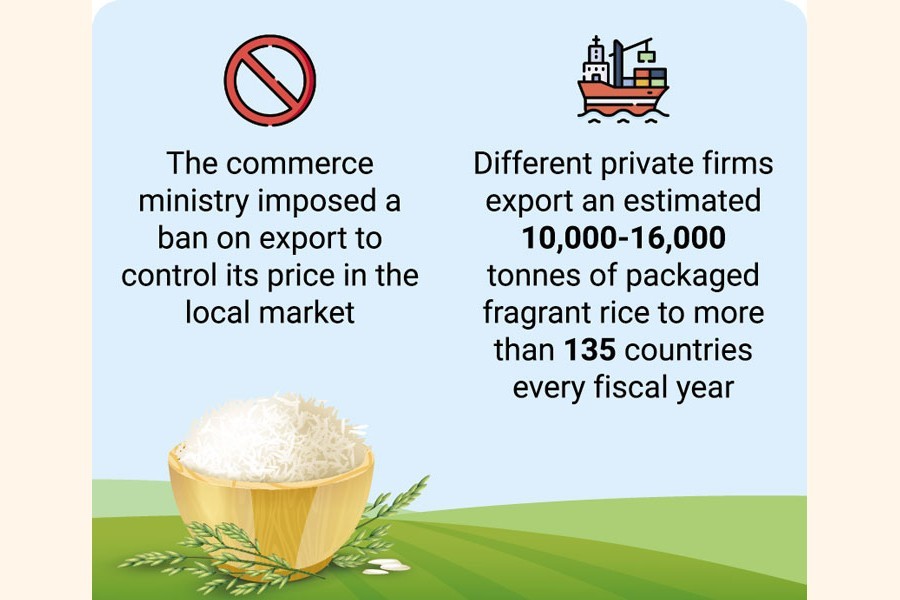Country's rice exporters fear losing the international market of aromatic rice as different neighbouring countries are trying to take control over the Bangladeshi fragrant rice market due to a ban on export of the scented rice by the government.
In this regard, Bangladesh Rice Exporters Association has requested the government to resume the export of aromatic rice on a limited scale to safeguard its international market.
The association also called for allowing special export permission in favour of its members, according to a recent letter sent by the association to the commerce ministry. A ministry official confirmed the receipt of the letter.
Earlier, on June 30, the commerce ministry imposed a ban on export of fragrant rice to control its price in the local market. The ban came into effect from July 2022.
As per the move, the ministry cancelled the export permission it gave earlier in favour of 41 companies.
In February last, the food ministry requested the commerce ministry to impose a ban on export of aromatic rice.
There are opportunities to export 25 types of aromatic rice subject to special approval by the commerce ministry, as per the export policy.
Before the ban, the ministry allowed export of the item on a case-to-case basis.
Different private firms, including Ispahani, Square and Pran, export an estimated 10,000-16,000 tonnes of packaged aromatic rice to more than 135 countries every fiscal year.
Besides, 4,500-10,000 tonnes are exported for expatriate Bangladeshis working and living in different countries.
Such rice goes to the United Arab Emirates, Saudi Arabia, Australia, Brunei, Bhutan, Canada, Switzerland, the UK, France, Germany, Finland, Greece, Hong Kong, Ireland, Italy, Jordan, Japan, Lebanon, the Maldives, Nepal, New Zealand, Myanmar, Mauritius, Malaysia, Kuwait, Liberia and South Africa.
Bangladeshi Chinigura, Kalijeera, Kataribhog, Basmati (locally known as Banglamoti) and Nenia are in great demand in the overseas markets.


